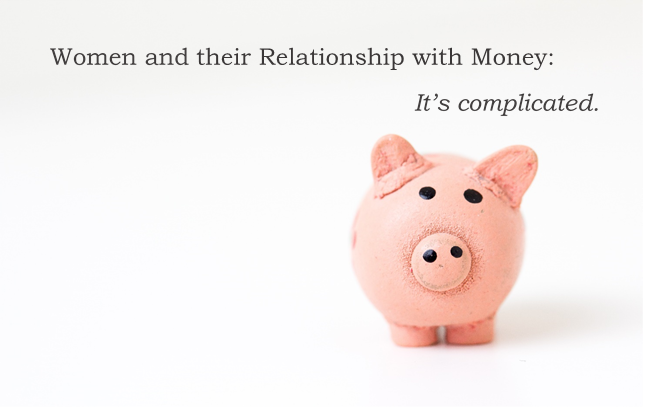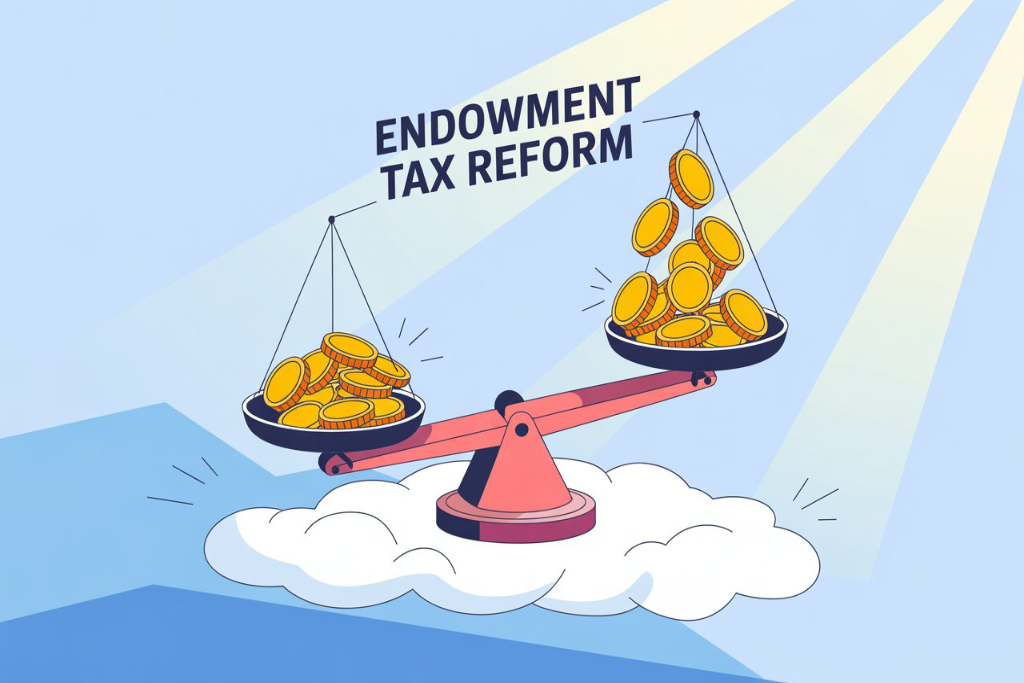How’s your Relationship with your Money?

The Complicated Relationship between Women and Money
Research shows that when you ask a woman about her relationship to money and investments, she’ll likely say, “It’s complicated.” It sure is.
In the 1980s, a woman-empowered commercial for perfume said that women could “bring home the bacon, and fry it up in a pan…and never let you forget you’re a man” To that we say, you have come a long way, baby.
A few decades later, women are not only bringing home some bacon, almost 4 in 10 are the primary breadwinners for the family.
And there’s more:
- 51% of women report they are CFO of the household, making daily spending decisions and managing family budgets and cash flow.[1]
- 53% have responsibility for managing the household’s long-term saving and investments.[2]
- Women control the majority of private wealth in the U.S. (at 51% of the total, or $14 trillion) and that share is expected to grow to $22 trillion by 2020.[3]
And yet, women report being less certain about their financial decision-making, less understood by financial advising professionals, and fearful that they’ll outlive their retirement savings. Now that’s complicated. On top of that, women don’t talk about money to each other. A full 61% of women said they would rather chat about their own death than talk about money, according to Merrill Lynch/Age Wave data.[4]
Educated, Accountable, and Afraid
Women have made great strides in the workplace and much of that is owed to women and their academic achievements. The proportion of women with college degrees in the labor force has almost quadrupled since 1970. More than 40% of working women had college degrees in 2016, compared with 11% in 1970.[5] That education has helped propel women into the workforce in greater numbers and to better paid positions as well.
Accordingly, women have taken on greater financial responsibility for daily spending, budgeting, and long-term, retirement planning, too. And those added responsibilities come complete with added stress. That same Merrill Lynch study found that 7 in 10 women worry about running out of money in retirement.
This fear is so real that there’s actually a term for it: the “Bag Lady Syndrome.”
So Many Responsibilities. So Little Time
Talk about complicated. Unfortunately, women’s bag lady fears are rooted in reality.
Here are the facts that are common knowledge (and backed by hard data): Women live longer than men. Women earn less than men. Women often leave the workforce for caregiving responsibilities and they may hold more temporary or part-time positions, all of which limit access to employer-sponsored plans and the matching contributions that make them essential to retirement security. And even when plans are offered, women tend to participate in them less frequently than men, and they invest less per pay. A recent study revealed that 57% of women didn’t invest a dime in 2017, compared to 44% of men.[6]
A survey of 5,000 workers by a consulting firm confirmed a retirement savings gender gap reflecting the different financial concerns between men and women. Call this the “what keeps you up at night” question.
According to the study, working men ranked saving for retirement as their top financial priority.[7] Women, on the other hand, ranked it fifth on their priority list, below meeting daily living costs, paying off debts, covering housing costs and general-purpose savings. Another study found that 63% of women under the age of 55 said, “Planning for tomorrow is difficult when there is already so much on my plate.”[8]
Even when women make time for managing finances and seek the help of professionals, most feel misunderstood or flat-out ignored.
A whopping 67% female investors surveyed in one study felt their wealth manager misunderstood their goals or couldn’t empathize with their lifestyle.[9] More than half of married women investors felt that their financial advisor directed the conversation to her spouse or partner, regardless of whether the advisor was a man or woman.[10]
On the Flip Side
But there’s good news, too. It’s worth noting what women do so well with their money. Women should be applauded for these financial management practices noted in study after study:
- First, they let their goals guide their decisions. Research sponsored by EY found that fulfilling personal goals is seen as the most important investment priority by wealthy women (40%), significantly ahead of market outperformance (31%). (This, in contrast to male investors who see pure performance as their top objective.)[11]
- Second, they know that when it comes to investments, winning isn’t everything. Another study found that 78% of women are more interested in talking to an advisor who focuses on improving the quality of their life versus just beating the market.[12] Kiplinger’s put it this way: “Studies show that men are more inclined to behave like baseball sluggers, who swing for the fences, even if it means running the risk of striking out far more often. Women, by contrast, are more like contact hitters, who are satisfied with a string of singles.”[13]
- Third, they take the long view, and trade less frequently than men (which tends to help investment returns).
- And finally, they value sound counsel. (And many get it.) Two-thirds of women expressed a strong interest in learning about finances and retirement planning.[14] And among a surveyed group of women who turned to a financial professional for guidance (30% of those surveyed), 75% wish they had done so earlier.[15] (And this includes the married investors who felt the advisor directed the conversation to her husband or partner, which demonstrates how much women value sound advice even when the delivery is somewhat lacking.)
So What Can You Do?
We encourage all women to care for themselves financially. Talk about your finances and what works for you. Take advantage of the advice that is yours for the taking. Here are three places to start:
Talk with your employer. Ask about the retirement education tools your benefits administrators can provide. There’s so much available these days. Some employers are even offering one-on-one counseling sessions on retirement matters, ranging from how to make the most of 401(k) investments, and how to calculate what you’ll need in retirement, to strategies for drawing down retirement accounts.
Visit available online resources. Take a look at mymoney.gov, choosetosave.org (a little dated, but with valuable calculators), smartaboutmoney.org and even the Social Security Administration website.
Consider seeking the objective point of view of an independent advisor. Whether you’re a plan sponsor responsible for educating employees or you’re looking to improve your relationship with your finances, charting a path with someone whose only interest is your success can give you (or the employees you care about) peace of mind and greater security and enjoyment in retirement.
________
Highland Consulting Associates, Inc. is celebrating 25 years of providing objective, conflict-free advice to institutional investors and private investors alike. Highland recognizes our women colleagues not for their gender, but for their abilities, and the unique contributions their roles, experiences, and insights bring to us and our clients.



